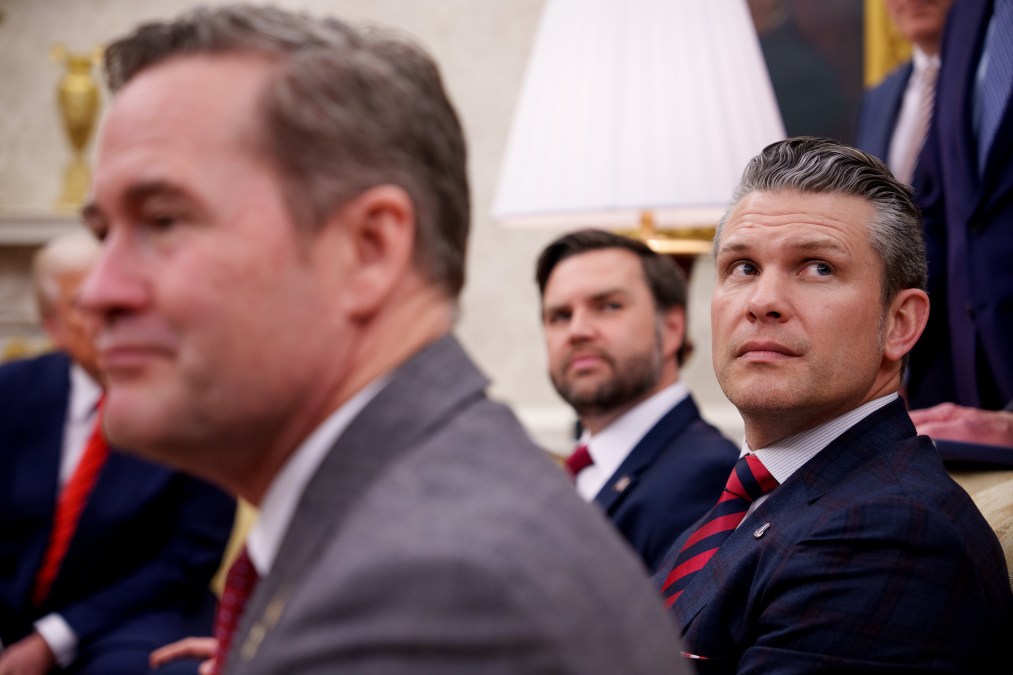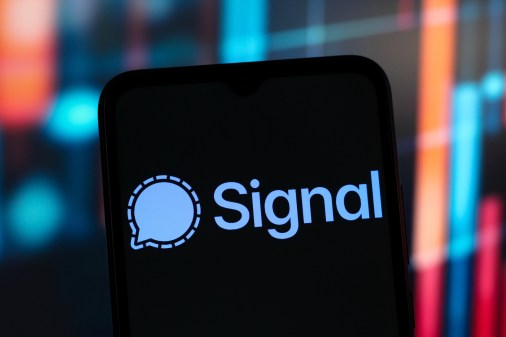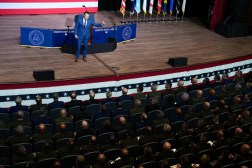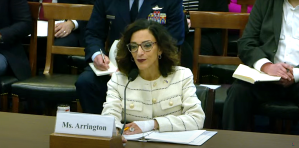Pentagon IG launches investigation into Hegseth’s involvement in ‘SignalGate’

The Defense Department’s top watchdog announced Thursday it will initiate a formal investigation into Secretary of Defense Pete Hegseth’s participation in discussing impending military operations on unclassified networks.
On March 24, Atlantic magazine editor-in-chief Jeffrey Goldberg published a story revealing he was accidentally added to a group chat on Signal, an encrypted but unclassified commercial messaging app, where some of the Trump administration’s top national security officials discussed upcoming strikes against Houthi militants in Yemen — including Hegseth.
“The objective of this evaluation is to determine the extent to which the Secretary of Defense and other DoD personnel complied with DoD policies and procedures for the use of a commercial messaging application for official business,” Steve Stebbins, acting inspector general at the Pentagon, wrote in a memo published Thursday. “Additionally, we will review compliance with classification and records retention requirements.”
Along with Hegseth, the “Houthi PC small group” Signal chat also included Vice President JD Vance, national security advisor Michael Waltz, CIA Director John Ratcliffe, Director of National Intelligence Tulsi Gabbard, Secretary of State Marco Rubio and other officials.
The scandal — dubbed “SignalGate” — exploded in Washington’s political circles and has been met with stark backlash from members of Congress. On March 27, Senate Armed Services Committee Chairman Roger Wicker, R-Miss., and Ranking Member Jack Reed, D-R.I., sent a letter to Stebbins calling for an investigation of the incident.
“If true, this reporting raises questions as to the use of unclassified networks to discuss sensitive and classified information, as well as the sharing of such information with those who do not have proper clearance and need to know,” the lawmakers wrote in the letter.
While the DOD IG memo does not detail the specific aspects of the incident it will investigate, Wicker and Reed listed six action items they wished to have the watchdog review. Among those are the information communicated in the chat and any remedial actions taken; whether or not that information is considered classified; the Pentagon’s policies related to sharing sensitive and classified information on non-government networks; and recommendations to address issues the IG identifies.
Overall, both the White House and the Pentagon have attempted to downplay the sensitivity of the information shared in the group chat, with many officials denying that the discussions involved classified information. While visiting the Indo-Pacific region the week after the Atlantic’s Signal story was published, Hegseth claimed that he did not discuss “war plans” on the messaging app.
Following backlash from the White House, Goldberg published a follow-up article that shed more light into the messages sent between Hegseth and other officials in the chat — including approximate times that specific weapons and aircraft would be used during the strike.
Despite the new details, Pentagon officials doubled down on their assertion the information wasn’t classified.
“These additional Signal chat messages confirm there were no classified materials or war plans shared,” Pentagon spokesperson Sean Parnell said in a statement. “The Secretary was merely updating the group on a plan that was underway and had already been briefed through official channels. The American people see through the Atlantic’s pathetic attempts to distract from President Trump’s national security agenda.”






